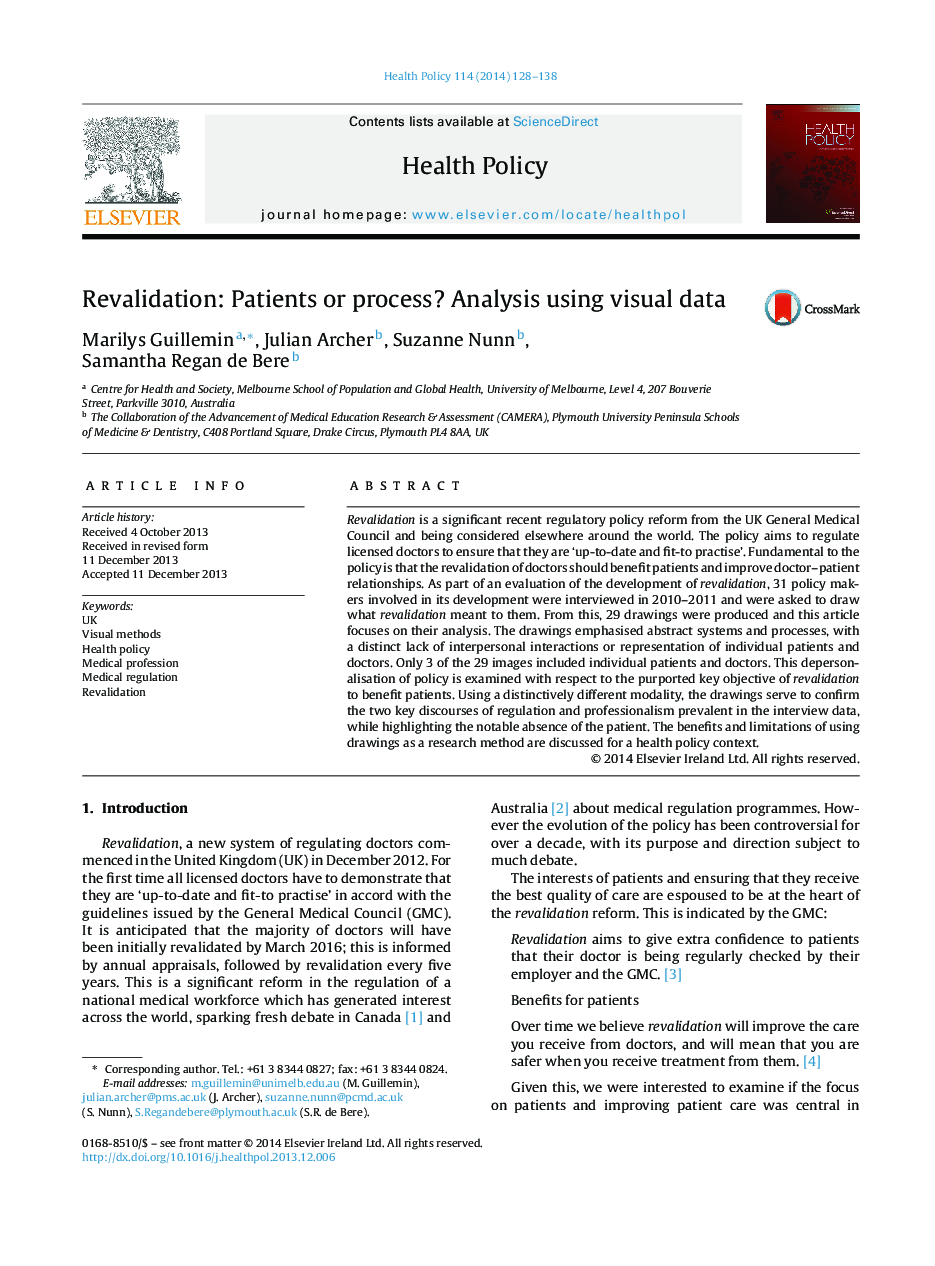| Article ID | Journal | Published Year | Pages | File Type |
|---|---|---|---|---|
| 6239322 | Health Policy | 2014 | 11 Pages |
Revalidation is a significant recent regulatory policy reform from the UK General Medical Council and being considered elsewhere around the world. The policy aims to regulate licensed doctors to ensure that they are 'up-to-date and fit-to practise'. Fundamental to the policy is that the revalidation of doctors should benefit patients and improve doctor-patient relationships. As part of an evaluation of the development of revalidation, 31 policy makers involved in its development were interviewed in 2010-2011 and were asked to draw what revalidation meant to them. From this, 29 drawings were produced and this article focuses on their analysis. The drawings emphasised abstract systems and processes, with a distinct lack of interpersonal interactions or representation of individual patients and doctors. Only 3 of the 29 images included individual patients and doctors. This depersonalisation of policy is examined with respect to the purported key objective of revalidation to benefit patients. Using a distinctively different modality, the drawings serve to confirm the two key discourses of regulation and professionalism prevalent in the interview data, while highlighting the notable absence of the patient. The benefits and limitations of using drawings as a research method are discussed for a health policy context.
